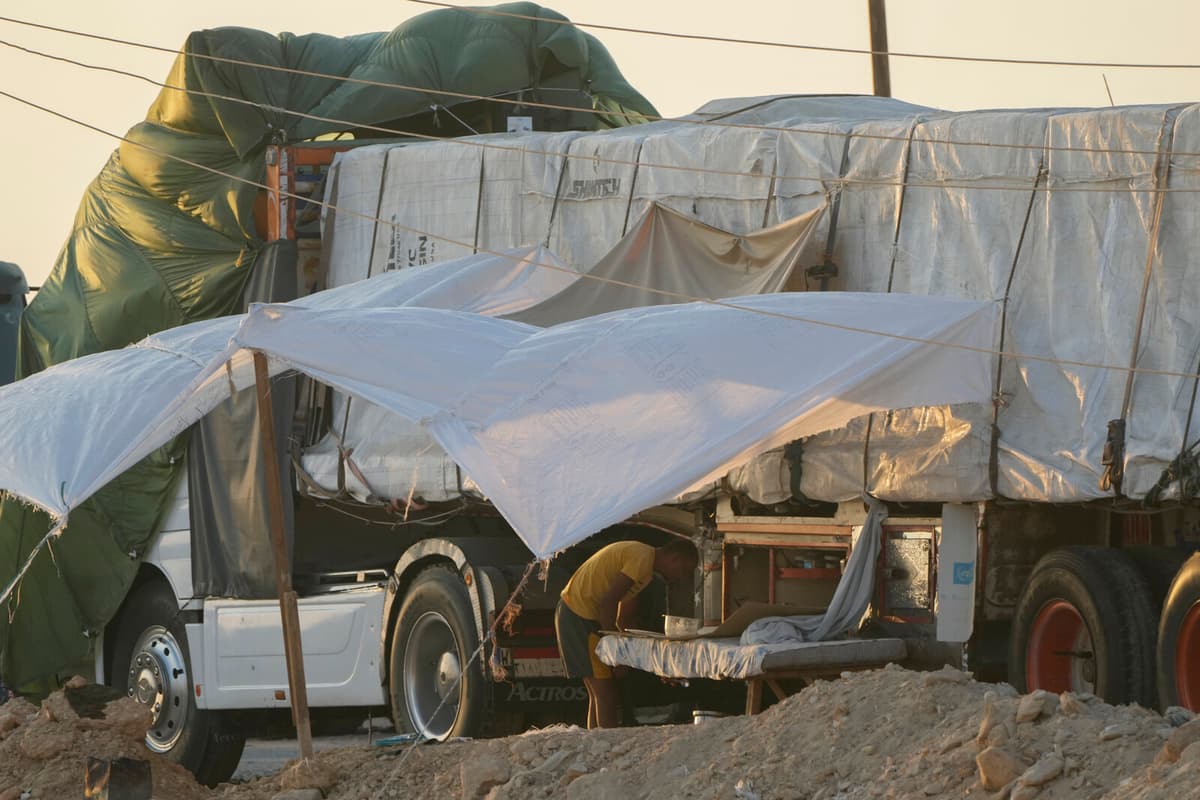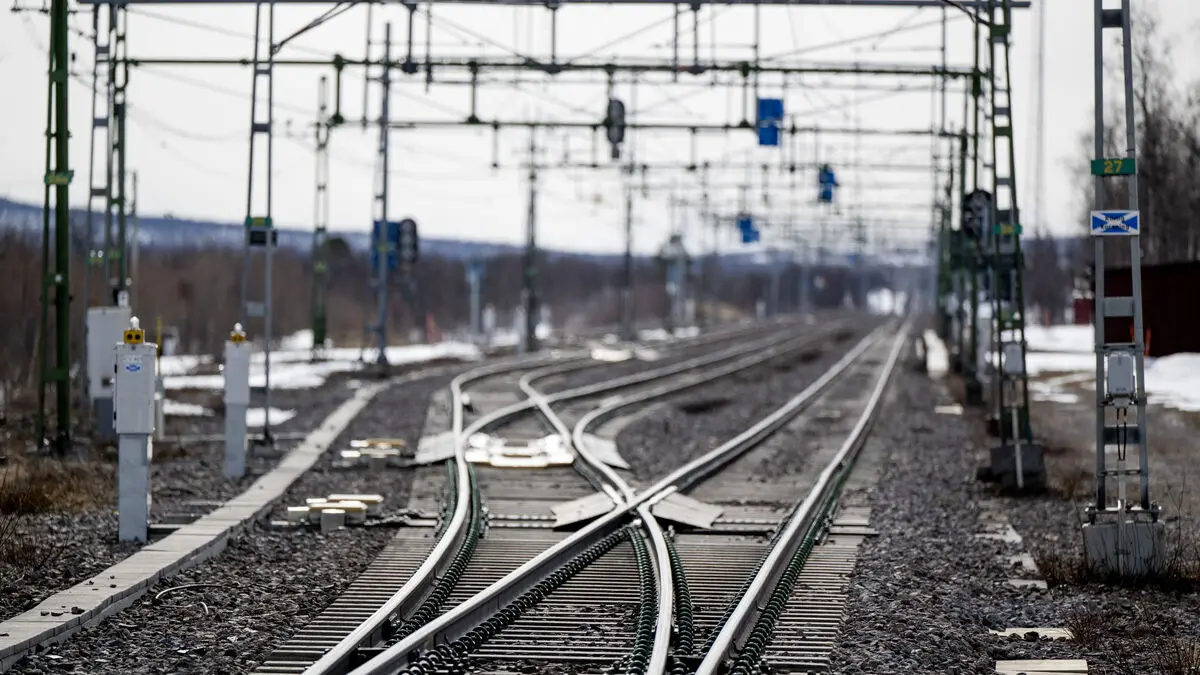The world wants to help. Deliveries of food, medicine, and other goods have piled up in both Israel and Egypt since the Gaza war began a year ago. But the conflict also affects border crossings. Only certain goods are allowed through, in smaller quantities, and only occasionally.
Many aid deliveries waiting here are handled by the Red Crescent. In connection with Denmark's Foreign Minister Lars Løkke Rasmussen's visit earlier in September, a representative of the aid organization said that at most 20 trucks per day make it past the Egyptian and Israeli controls.
The Israelis are the slowest – they only work office hours, while the Egyptians inspect cargo around the clock.
It's like a drop in the ocean, says the Red Crescent's representative to the Danish news agency Ritzau about the aid that gets through.
"Still hoping"
And it's only certain types of food and medicine that can withstand the long wait in temperatures sometimes around 40 degrees. Much has gone to waste, especially after a dramatic change in the situation in May. Then Israel militarily intervened in the Philadelphia corridor, the no man's land between the Gaza Strip and Egypt. The Israelis didn't think the Egyptians were good enough at stopping smuggling to terrorist-stamped Hamas.
I arrived a week later, said Abd al-Fattah, a 50-year-old truck driver from Cairo, to the news agency New China in August.
When the Chinese reporting team visited, he had spent three months in the truck queue on the spot.
We sleep in our cars and suffer from the summer heat. But we still hope to get into the Gaza Strip and deliver our aid to the people there.
Dry pita bread
Abd al-Fattah's cargo consists of, among other things, tents and medical supplies, which can withstand the wait. But it's not the case for everyone.
Many food shipments have spoiled here in the heat and sun, he said.
A month later, Ritzau's journalists met the driver Mohammad Ibrahim, from the Egyptian port city of Port Said, at the same spot.
I've been waiting here for four months. I barely have water or food, he says – and holds up two dry pieces of pita bread that the Red Crescent has distributed.
As time went by, the aid organizations had no choice but to put the drivers of the aid convoys on the lists of those in need. So now they receive similar rations intended for the Gazans.
Silence from Cairo
According to Mohammad Ibrahim, there may be drivers stuck in the truck landscape since February. Others drive back and forth through the desert with unfinished business.
Last time, we came and stood here for over 50 days. In the end, we drove back the cargo because it had gone bad, chauffeur Sayid al-Nabawi told al-Arabiya.
We took a new cargo, and here we are again – only God knows if this cargo can be used before it goes bad.
None of the military parties want to take responsibility for the tragedy. Egypt said in the spring that it would be a breach of previous peace agreements if Israel entered Philadelphia. But when it happened, there was silence from Cairo – the government there values its mediator role alongside the USA and values its contacts with both Israelis and Palestinians.
Can become stuck
Israel keeps the Rafah border largely closed, and instead directs the southern traffic with a destination in Gaza to Kerem Shalom, a border crossing on the Israeli side that Israel can control entirely.
But they have no coordination with archenemy Hamas inside Gaza. So UN spokesmen have previously testified to TT that even aid shipments that get through can become stuck abandoned on Palestinian territory, because no one can or dares to pick them up when the warring parties haven't given clearance.
Lars Løkke Rasmussen was moved by his visit.
It's frustrating to stand here and know that on the other side of the fence, there's a humanitarian catastrophe. And it's not created by nature, but created by humans, said Denmark's Foreign Minister to Ritzau.
The city of Rafah has ancient roots – the ancient Egyptians' hieroglyphs for the name have been transcribed as "Rpwhw".
In 1906, the town ended up on the border that Egypt's colonial power Britain and the then-ruler of Palestine in the Ottoman Empire drew between them.
Rafah grew as a British base during World War II. In 1949, the border disappeared when the Gaza Strip was occupied by Egypt after Israel's establishment. In the Six-Day War of 1967, the entire area was conquered by Israel.
But in 1979, the city was split again, when the Israel-Egypt peace treaty led to a new border between Sinai and Israel/Gaza.
The Palestinian part has since grown into a larger city, with around 200,000 inhabitants before the latest war. This year, there have been around 1.5 million people, when Palestinians from other parts of the Gaza Strip fled there.
The Egyptian half of the city, on the other hand, has largely ceased to exist. It was leveled to the ground during and after the Sinai uprising, a separatist conflict in the 2010s.






